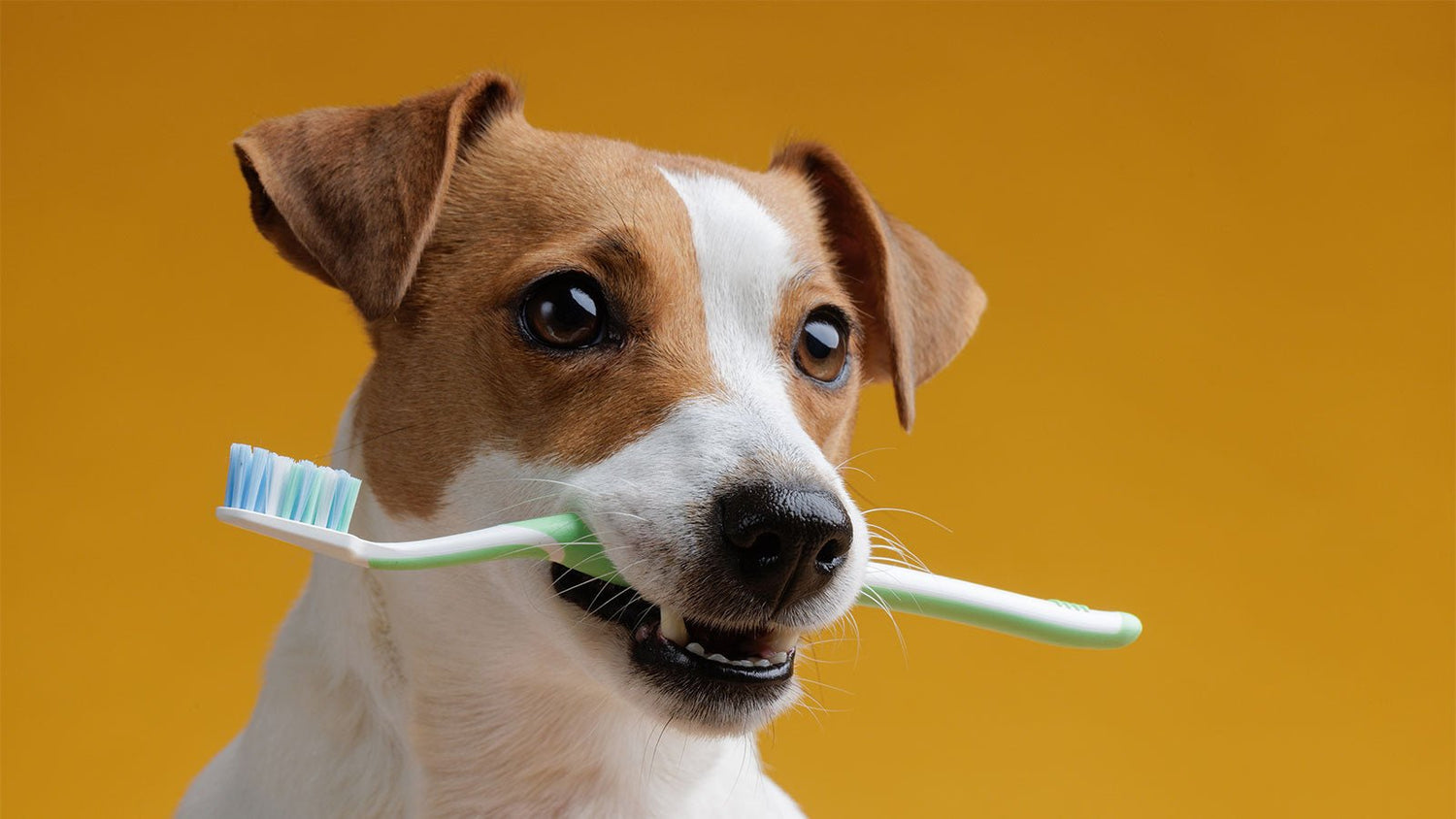This article is contributed by Esther Lim, pawrent to 2 lovely dogs named Milo (@babymiloxpoodle) and Maya (@mayaxgoldendoodle). Esther believes that a combination of both physical and mental stimulation is key to happy, healthy dogs.
Dogs go through stages in their life, just as people do. That adorable little pup that grew into your constant companion may be showing signs of getting old, both physically and mentally. Different breeds and sizes age at different rates. A large breed like a Great Dane is considered a senior at around six years old, while a small dog like a Chihuahua, for example, would not be regarded as old until she is about eight to ten years old. The more aware you are of the signs, the sooner you can help your dog age gracefully.
Physical signs that your dog is ageing:
- Cloudy eyes or difficulty seeing: Eye cloudiness can gradually happen that you might not notice right away. Your dog may also start bumping into things or have trouble locating a toy on the floor or other familiar objects. This could signal vision loss.
- Slowing down, limping or difficulty sitting and standing: An older dog may start to have trouble with stairs or getting up after a nap. You might notice weakness in their back legs. While we all slow down as we age, your dog's mobility issues could be caused by arthritis or another degenerative disease.
- Unknown lumps and bumps: Some dogs are prone to harmless fatty lipomas; however, any new lump should be checked by a veterinarian to rule out any malignant tumour.
- A drastic weight change: It is not surprising when an older, less active dog gains some weight. You would have to adjust your dog's diet and exercise to maintain a healthy weight. However, you should also pay attention if your senior dog loses weight. This could be caused by loss of appetite, poor absorption of nutrients, or a digestive illness. Always consult your vet when in doubt!
- Incontinence or difficulty "going": If your dog suddenly seems to forget his housetraining or seems to strain himself while urinating, these could be signs of urinary tract infection or kidney disease. However, incontinence is not uncommon in elderly dogs.
Behaviour and mental signs that your dog is ageing:
- Changes in the sleep-wake cycle including restlessness and pacing during the night.
- Forgetting commands and cues she once knew. Simple daily commands like "sit" or "stay" may seem confusing for her suddenly.
- Increased anxiety shows signs of fear towards familiar people or objects.
- Confusion and disorientation: You walk into a room and find your pup standing awkwardly in the corner or behind a piece of furniture.
How can you help your ageing dog?
Senior dogs don't have to suffer. Senior dogs can and should still live fulfilling lives. Making even the smallest changes to assist mobility in senior dogs can improve an animal's overall wellness and lengthen its lifespan. Is the flooring at home slippery? Laminate floors and tiles lack traction, which creates a problem for your senior dog to get around. These household surfaces are hard to grip, which may cause your dog to skid and stumble. Invest in non-slip mats, and place them around the house. This would help them walk around easier and not accidentally cause hip dysplasia.
Dogs who are allowed on sofas and beds may find it harder to climb or jump up or down. You can provide a safer alternative by introducing ramps for your senior dog to reach elevated surfaces. With products like this, your senior dog does not have to rely on you to pick them up, which allows them to remain independent and active.
Most dogs sleep for 12 to 18 hours a day. Choosing the right bed is essential. Sleeping on the floor or on other hard surfaces can be damaging to your dog's health. Orthopaedic dog beds can be used to help ease the pain and discomfort of hip dysplasia, arthritis, or other structural ailments. Orthopaedic beds provide senior dogs with a place to lounge pain-free. Inflammation, soreness, aches and pains can all be aggravated by sleeping on hard surfaces. Dogs, like people, need good quality sleep to stay healthy. A good night's rest can help improve your dog's memory. Choose a bed that is of an appropriate size for your pup. Naturally, larger dogs need bigger beds than smaller ones. This ensures that your pup has more than enough space to stretch out and snooze. If your senior dog has incontinence issues, it is also important to look for a dog bed with a removable cover that you can remove and wash. The mattress itself should also be able to wash or can easily be hosed down by water.
Have you heard of Hydrotherapy? Hydrotherapy literally means water therapy and refers to any therapeutic use of water to aid or improve health. Exercising in water has the benefit of providing both buoyancy and resistance, making it possible to strengthen and condition muscles and build endurance without placing stress on joints. For dogs, Hydrotherapy usually consists of either swimming or walking in water. According to Dr Tari Kern, a certified canine rehabilitation practitioner, "Hydrotherapy can be used as part of a very specific, structured program to ease arthritis discomfort in pets, improving function after injury or surgical procedures."
Our pets often experience a decline in their cognitive abilities as they age. This condition is also known as Cognitive Dysfunction Syndrome (CDS), and it can occur in dogs between ages 12 to 14 years old. If you notice any signs of CDS in your dog, talk to your veterinarian immediately. However, it is never too early to start being proactive about your dog's cognitive health. You can do many things to help strengthen your dog's brainpower, such as giving food and supplements designed to support a healthy brain and memory recall in your pets. The right nutrition can support your dog's brain, lowering his risk of experiencing cognitive decline. It may even help to reverse some of its effects. Studies have shown that a diet rich in antioxidants is beneficial for brain health. The right food and supplements can be beneficial to your dog's brain health, but keeping his mind active and engaged is very important too.
Mental stimulation for dogs includes spending quality time with them, as the special bond you share is great for their cognitive abilities. Playing together is a great way to exercise a dog's mind and body. Keep your dog occupied with puzzle games or problem-solving activities. These activities help wake up areas in the brain that have been inactive, keeping it sharp and protecting it against further decline. Combining sight, scent, and spatial orientation required to solve puzzles can help connect different parts of the brain.
Did you know that having a loving relationship with your dog boosts the levels of oxytocin ("the love hormone") in your body? It turns out that dog loves getting massages almost as much as we do! Our pets also get a boost in their "feel-good" hormones when they are petted by someone they trust. Canine massage therapy is one of the top holistic services available, and some of its benefits include:
- Pain relief: As your dog gets older, soft tissue injuries are common. A gentle, therapeutic massage can help dogs find relief from achy joints and muscles. The act of massaging muscles stimulates the release of endorphins, which help to alleviate pain.
- Stress relief: Dogs can get stressed out for many reasons. It can make them sick or even cause behaviour changes. A nice calming massage can help dogs take the edge off, providing a comforting form of relaxation.
- Improves circulation: Massage increases circulation, ensuring your pup is getting a healthy supply of blood, oxygen and nutrients to their brain and other organs.
- Stretching: This is particularly good for older dogs who are not as active and mobile as they once were or suffered an injury. Therapeutic stretching can help stiff muscles and improve their range of motion.
It is never too early nor too late to start pampering your pup! You will have a happier and healthier dog, which would benefit you in the same way.
All views expressed on this site are author's own and do not represent the opinions of any entity whatsoever. The purpose of the article is to share experiences and opinions in general. If you are seeking a professional advice on how you should proceed to achieve mental stimulation for your dog's wellbeing, please consult a professional.





